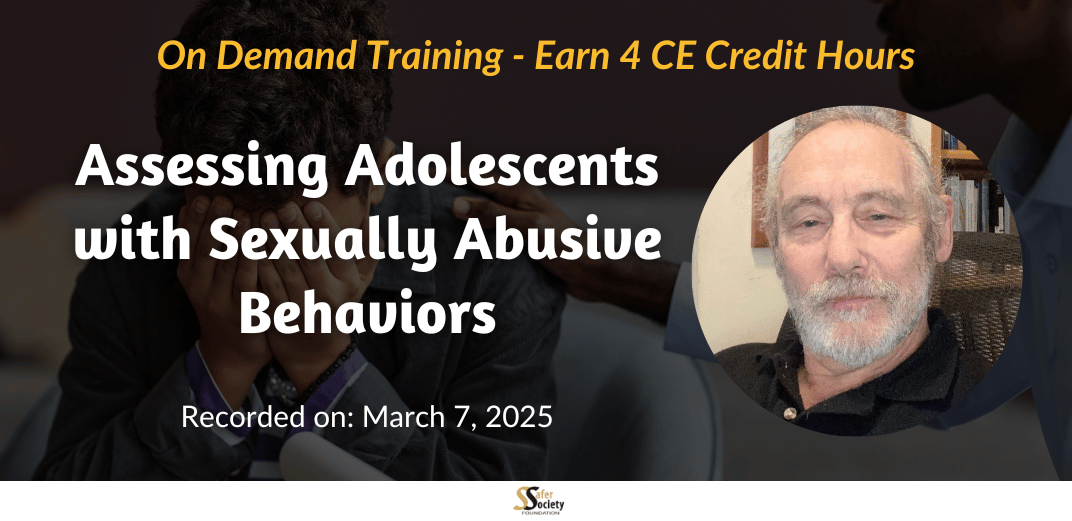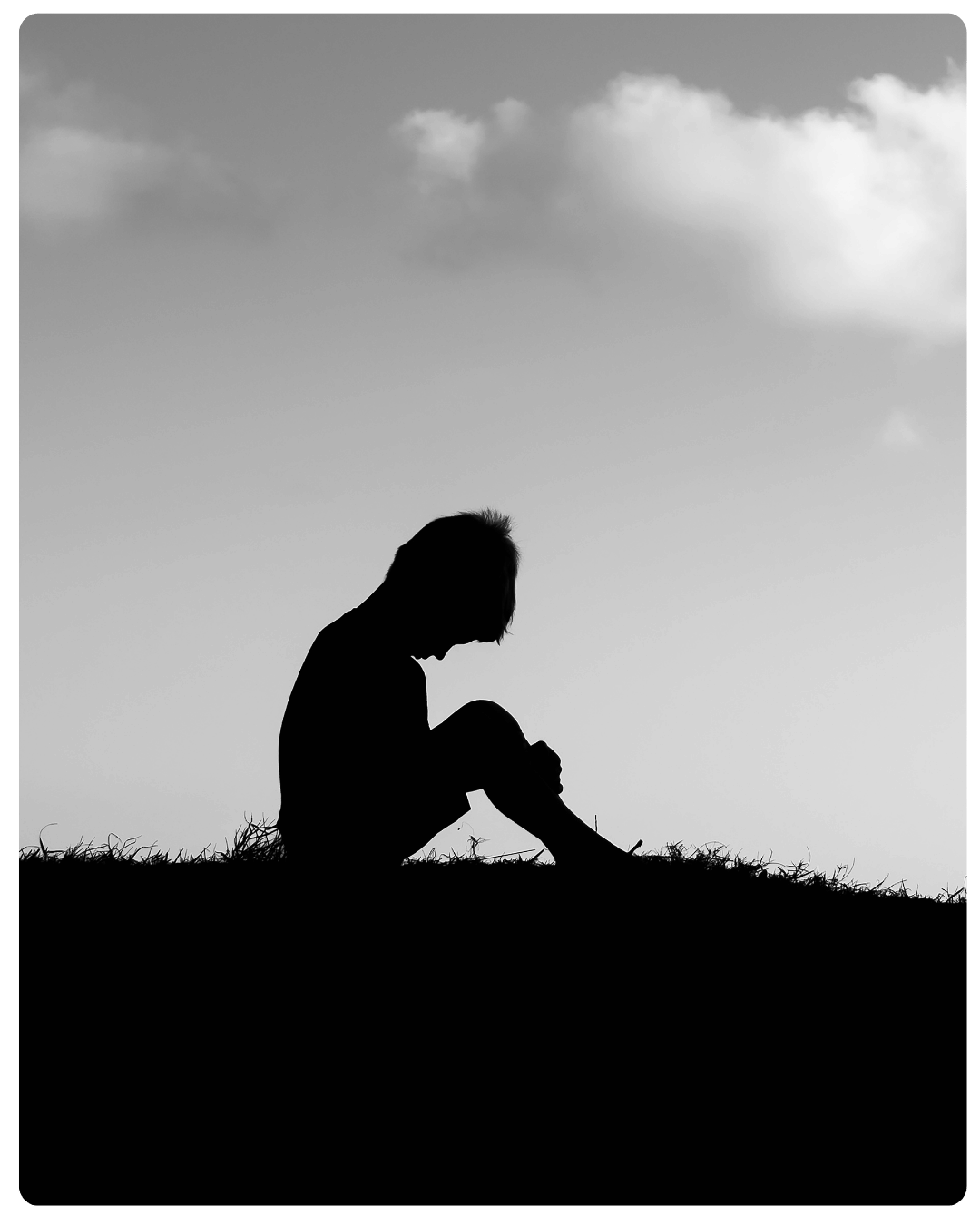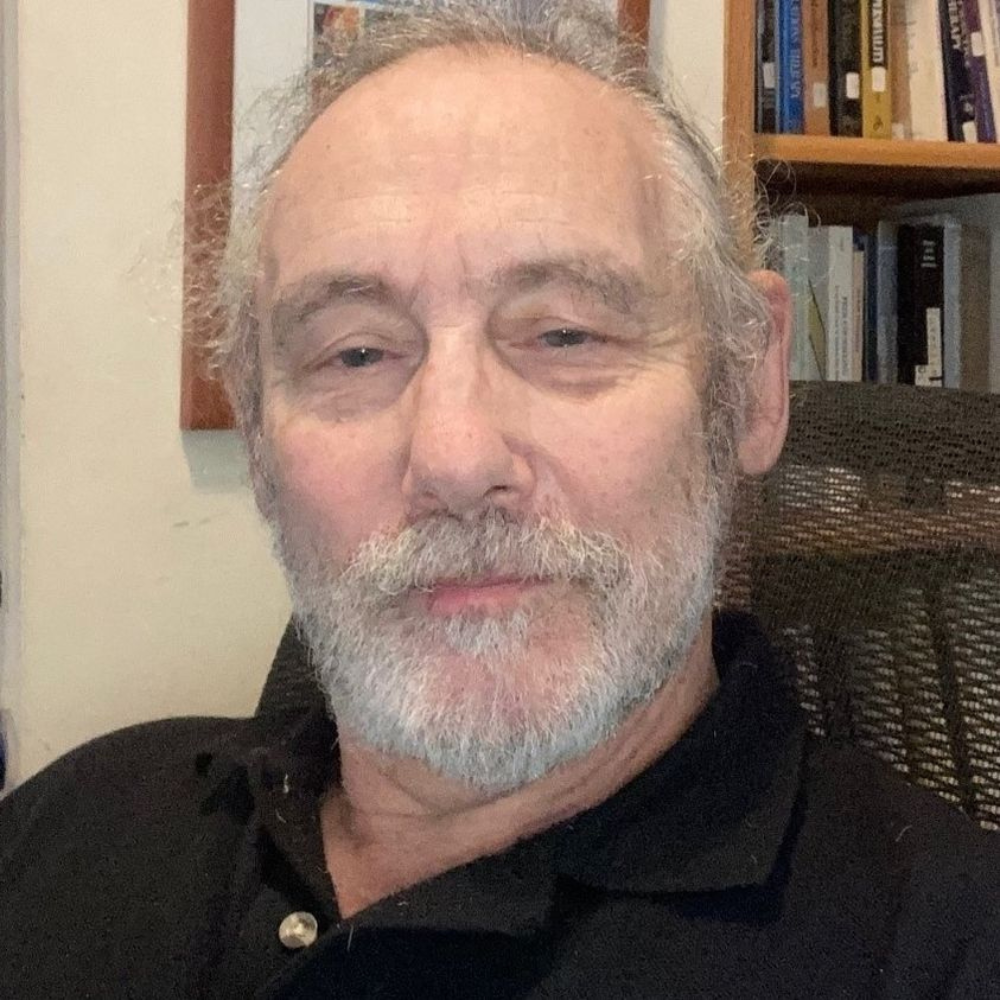
Assessing Adolescents with Sexually Abusive Behaviors
Already purchased an On Demand training?
Click here to access your Safer Society On-Demand Training Center account.

Understanding and addressing sexual risk among adolescents who have engaged in sexually abusive behavior is important for ensuring effective interventions and treatment planning. Phil Rich developed this training to provide professionals with advanced insights into contemporary sexual risk assessment methodologies.
During this training, participants explore:
- Primary risk assessment approaches
- The role of commonly used evaluation instruments
- Developmental and contextual factors influencing behavior
The training emphasizes a holistic approach to assessing sexually problematic behaviors by examining both risk factors and protective elements within the broader psychosocial context. This perspective equips professionals to conduct more comprehensive, sensitive evaluations that account for the complexity of youth behavioral health.
Grounded in empirical research and clinical best practices, this training bridges theoretical knowledge with practical application. Participants gain tools to develop nuanced, individualized assessment strategies that support effective decision-making in treatment and case management.
1) Analyze contemporary approaches to assessing sexual risk among juveniles
2) Evaluate the strengths and limitations inherent in the risk assessment process
3) Describe the role and value of structured risk assessment instruments in guiding case management and treatment planning
4) Demonstrate the practical application of risk assessment instruments in professional practice
5) Explain how the assessment process allows informed estimations of sexual risk
6) Integrate the 2017 ATSA adolescent guidelines into the evaluation of children and adolescents with sexually problematic behaviors
Audience
This training is designed for professionals working with adolescents who have sexually abused others. This includes social workers, psychologists, clinical counselors, and interested paraprofessionals.
Content Level
Disclosure
Continuing Education Approval
American Psychological Association (APA)
Safer Society Foundation, Inc. is approved by the American Psychological Association (APA) to sponsor continuing education for psychologists. Safer Society Foundation, Inc. maintains responsibility for this program and its content.
Who's Presenting

Phil Rich, Ed.D., LICSW
Phil Rich presents, trains, and consults nationally and internationally, specializing in work with children with problematic sexual behavior and adolescents and young adults who have engaged in sexually abusive behavior. He holds a doctorate in applied behavioral and organizational studies and a master’s degree in social work, and has been a licensed independent clinical social worker for almost 40 years. Phil served for 13 years as the Clinical Director of a large residential treatment program for children, adolescents, and young adults who have engaged in sexually abusive or sexually troubled behavior, and has been the Program or Clinical Director of six residential or day treatment programs. Phil is the author of four books that address work with sexually abusive youth, as well as multiple contributed chapters and articles, and a series of inter-related workbooks for youth in treatment for sexually problematic behavior, now in their second edition. He is a fellow of the Association for the Treatment of Sexual Abusers, served as the juvenile practice representative on the ATSA Executive Board, and was the founding chair of ATSA’s juvenile practice committee.
